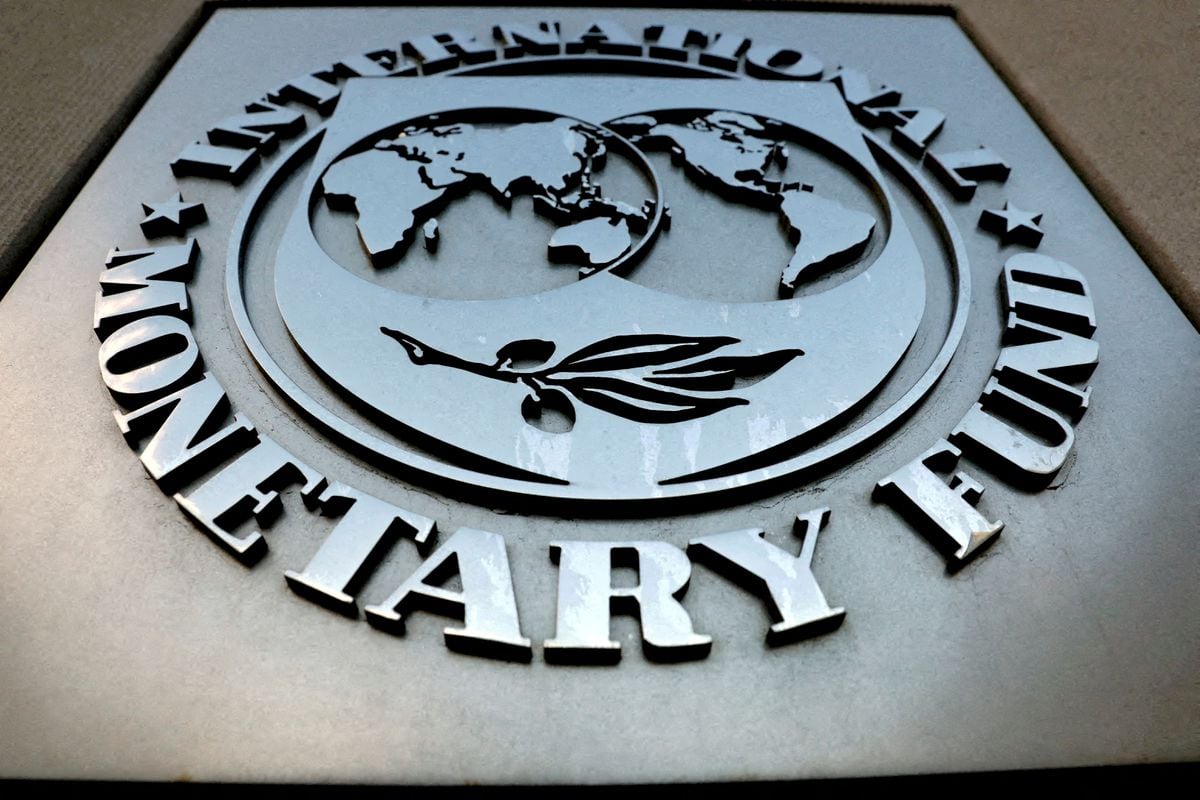An IMF logo, at the IMF headquarters in Washington.Yuri Gripas / Reuters
The horizon is still full of dark clouds and unknowns - will there be a new wave of the virus? Will the vaccination calendar take off at the rate promised by the governments? - which condition the near future of European banking.
But the technicians of the International Monetary Fund (IMF) consider that they have more than enough capital to withstand the crisis.
In an analysis published this Friday, the agency's analysis department concludes that, although the pandemic is "significantly" eroding the main ratios of financial institutions, they have "buffers large enough to withstand the likely impact of the crisis."
And that, "with the right policies, they can also help the recovery by facilitating new loans."
More information
The European Banking Authority calls to "be prepared" in the face of an increase in non-performing loans
Analysis |
Greater stress on European banking
The IMF and the Bank of Spain warn of problems in banking due to corporate debt
In short, a few tough months are coming for the sector, with forecasts of an upturn in non-performing loans, but the Washington-based organization believes it has enough muscle so that the hit of the pandemic does not leave scars as deep as those of the Great Recession.
Unlike the latest studies by the ECB and the European Banking Authority (EBA), the IMF economists incorporate into their analysis both measures to support indebted households and companies and support to banks for strengthen their resistance to the crisis.
Taking as a starting point its latest macroeconomic forecasts, published in January, the IMF believes that eurozone banking is "broadly resistant" to the deep recession registered in 2020, as well as to a recovery that so far in 2021 is taking place. much more limping than anticipated.
According to their calculations, the aggregate capital ratio - a fairly complete measure of the health of a financial institution's balance sheet - will go from 14.7% to 13.1% in 2021 if current support policies are maintained.
And, even if not, "no bank will fail to meet the minimum capital requirement of 4.5%", a figure beyond which solvency problems are very pressing.
The agency also warns this Friday to the governments of the euro against a premature withdrawal of support to households and companies in debt, which would place them "on the edge of the cliff" and would put at risk the supply of credit "just when it is most needed" .
As the recovery “gains momentum”, yes, the eligibility criteria “should be stricter and better targeted”, although without ruling out more “direct support to viable companies”.
The speed of recovery is key
Among the large countries in the euro zone, Spanish banks are, according to IMF data, the ones that are benefiting the most from the support policies for households and companies implemented by community and national authorities, followed by their peers French and Italian.
On the other hand, the entities that benefit the least from these measures are the Germans, who hardly notice the changes in their basic capital ratio (CET1): with or without them they would be practically at the same level.
The economic recovery at this time depends on two essential factors: the agility in vaccination and the fiscal support measures that the governments will deploy in the coming months.
And the resilience of banks depends, in turn, on the time that elapses until activity recovers and GDP leaves the falls behind.
"A prolonged [and not rapid] recovery could result in much greater losses and provisions for bad loans much higher," remarked the IMF technicians, who call to wait for the economic recovery to be well established before completely lifting the loans. restrictions on the distribution of profits by banks.





/cloudfront-eu-central-1.images.arcpublishing.com/prisa/JVLB4BGCGKEAEERWV6XUTKFN2U.jpg)

